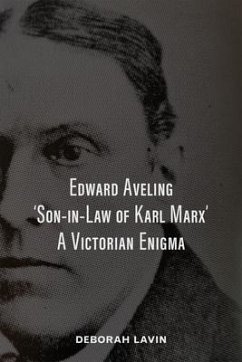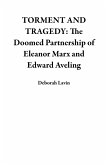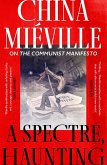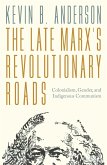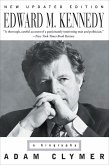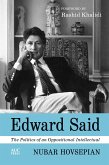This book is a biography of Dr Edward Bibbins Aveling (1849-1898). The author first came to her subject by way of Eleanor Marx. She soon discovered that Aveling was a very estimable and significant figure in his own right. He was a leading presence in the British socialist movement in the last two decades of the nineteenth century, where he is found in every turn in the movement's development. And as the Free Love partner of Karl Marx's youngest daughter, Eleanor, he enjoyed billing as the 'son-in-law of Karl Marx'. He also benefited from a close connection with Engels. Yet, oddly, Aveling has found no real place in history; he earns no more than honourable mentions in histories of socialism.
Deborah was intrigued by Aveling's elusiveness. The truth, she found, was that Aveling did not live up to his billing. He showed a remarkable inability to build on his successes and left no positive accomplishments behind him. Rather than looking more closely at this awkward conundrum, historians have preferred to avert their gaze and elide him from history. While Eleanor has had a number of biographers, Aveling has had none until now.
Another factor making for the neglect of Aveling has been the extreme paucity of documentation on his life. He led in many respects a secretive existence and was adept at kicking over his traces. For this reason alone, he poses an immense challenge to any biographer.
Aveling saw himself very much as a man of science and prior to his adoption of Marxism had made his name as a militant secularist. It was a stage in his life which brought him into an intense relationship with another ardent secularist, Annie Besant (a connection which neither party ever acknowledged and is now all but forgotten). He would probably have found his true home in the secularist movement, but circumstances of his own making made it impossible for him to stay and drove him on to Eleanor and to Marxism.
Once drawn together, Aveling and Eleanor worked as partners for fourteen years. But it was an ill-starred affair, remembered mainly for the manner in which it ended, with Eleanor's tragic death, apparently a suicide.
It has always posed the severest challenge to Eleanor's biographers to understand why she would take her own life. No construed motives have ever been wholly convincing. To Deborah's mind the matter cried out for fresh examination. And so she was led to begin the exhaustive search whose result is this book. It was a task in which Deborah was aided by her close knowledge of the rudimentary state of forensic medicine in the nineteenth century. In the outcome Deborah lays bare glaring defects in the conduct of Eleanor's inquest, defects not by any means untypical of the times, but amplified in this case by social attitudes which availed scant respect to the daughter of a European revolutionary. The outcome was a verdict which gained almost unquestioning acceptance, but which Deborah proves to have been not merely unsafe but almost certainly wrong.
It must not be thought that this book is a mere build-up to a tragic dénouement. It is in fact a compendious study of Aveling and his times.
We see here the development of British socialism in the formative years before the inception of the Labour Party, we gain a close appreciation of the impact of major figures such Hyndman, William Morris, and not least Engels; we also catch keen glimpses of Marx, Annie Besant and many others. Above all, we have a major contribution to our understanding of the growth of British socialism and working-class consciousness in the later part of the nineteenth century.
Deborah was intrigued by Aveling's elusiveness. The truth, she found, was that Aveling did not live up to his billing. He showed a remarkable inability to build on his successes and left no positive accomplishments behind him. Rather than looking more closely at this awkward conundrum, historians have preferred to avert their gaze and elide him from history. While Eleanor has had a number of biographers, Aveling has had none until now.
Another factor making for the neglect of Aveling has been the extreme paucity of documentation on his life. He led in many respects a secretive existence and was adept at kicking over his traces. For this reason alone, he poses an immense challenge to any biographer.
Aveling saw himself very much as a man of science and prior to his adoption of Marxism had made his name as a militant secularist. It was a stage in his life which brought him into an intense relationship with another ardent secularist, Annie Besant (a connection which neither party ever acknowledged and is now all but forgotten). He would probably have found his true home in the secularist movement, but circumstances of his own making made it impossible for him to stay and drove him on to Eleanor and to Marxism.
Once drawn together, Aveling and Eleanor worked as partners for fourteen years. But it was an ill-starred affair, remembered mainly for the manner in which it ended, with Eleanor's tragic death, apparently a suicide.
It has always posed the severest challenge to Eleanor's biographers to understand why she would take her own life. No construed motives have ever been wholly convincing. To Deborah's mind the matter cried out for fresh examination. And so she was led to begin the exhaustive search whose result is this book. It was a task in which Deborah was aided by her close knowledge of the rudimentary state of forensic medicine in the nineteenth century. In the outcome Deborah lays bare glaring defects in the conduct of Eleanor's inquest, defects not by any means untypical of the times, but amplified in this case by social attitudes which availed scant respect to the daughter of a European revolutionary. The outcome was a verdict which gained almost unquestioning acceptance, but which Deborah proves to have been not merely unsafe but almost certainly wrong.
It must not be thought that this book is a mere build-up to a tragic dénouement. It is in fact a compendious study of Aveling and his times.
We see here the development of British socialism in the formative years before the inception of the Labour Party, we gain a close appreciation of the impact of major figures such Hyndman, William Morris, and not least Engels; we also catch keen glimpses of Marx, Annie Besant and many others. Above all, we have a major contribution to our understanding of the growth of British socialism and working-class consciousness in the later part of the nineteenth century.
Dieser Download kann aus rechtlichen Gründen nur mit Rechnungsadresse in A, D ausgeliefert werden.

